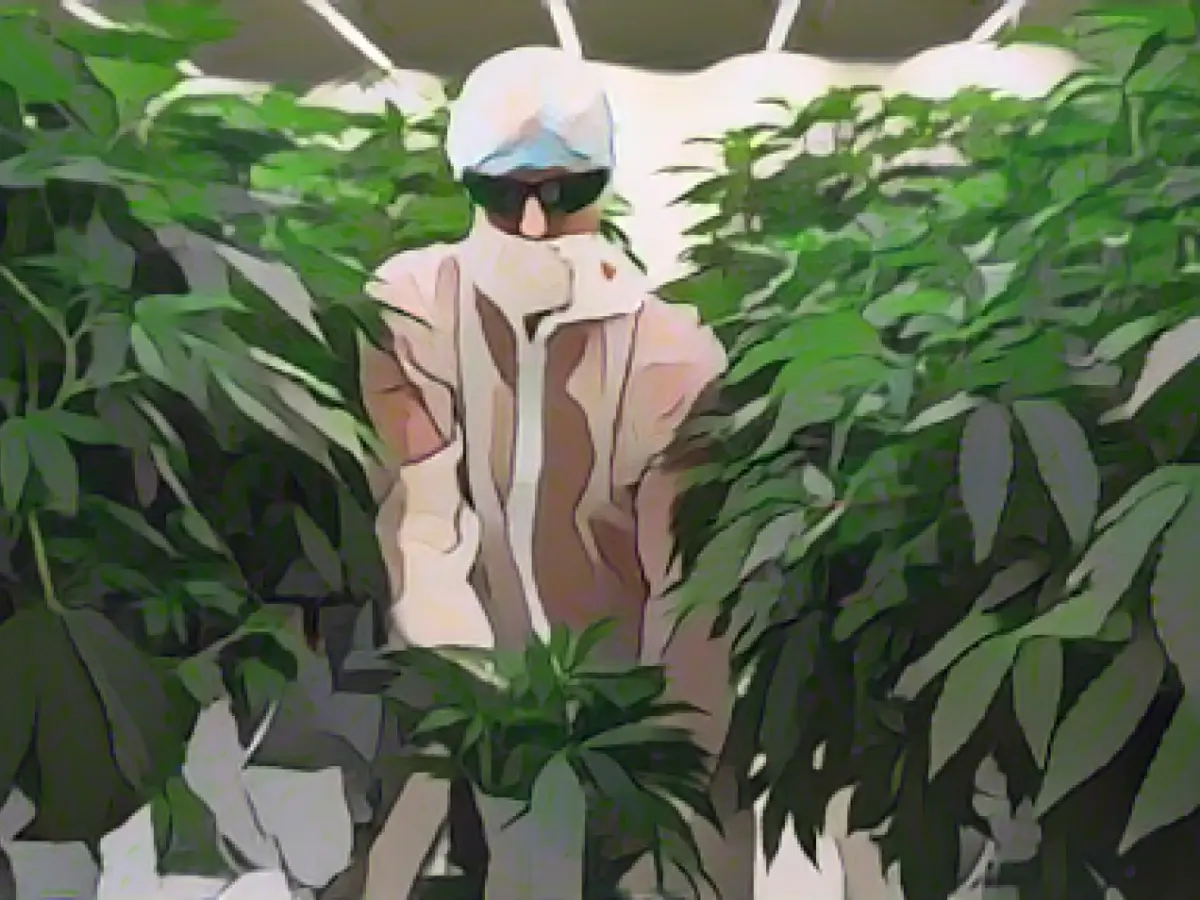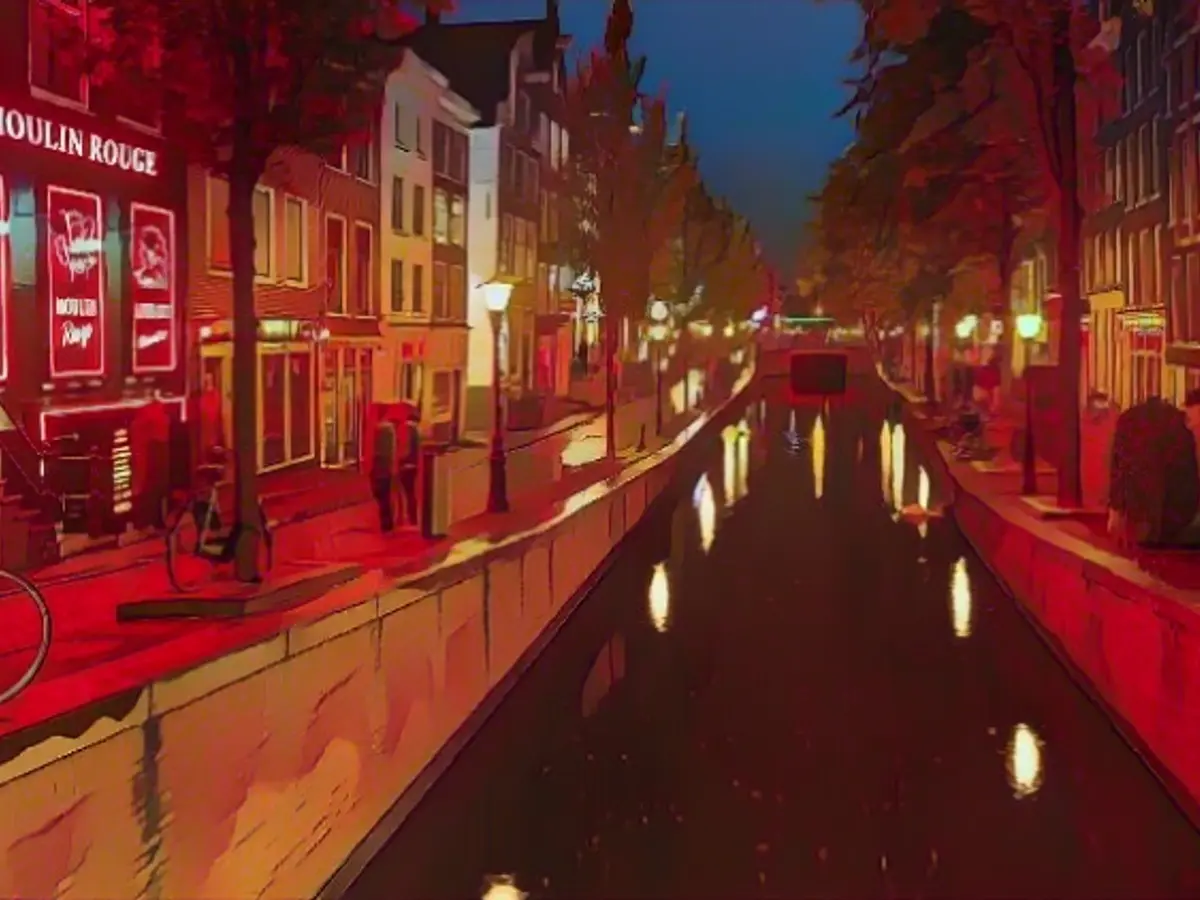Breaking Down the Green Leaf Frenzy: Netherlands' Experiment with Legal Cannabis
In a bid to strike a balance between legality and unchecked drug-related crimes, the Dutch government launched an audacious pilot project in 2019. After meticulous preparation, Breda and Tilburg became the initial test beds, with eight more cities and a district of Amsterdam eager to hop aboard.
Contrary to popular belief, cannabis is not openly sold or allowed in the Netherlands – despite the nation's infamous reputation for its ubiquitous coffee shops. Since 1976, the sale and consumption of small quantities of marijuana and hashish in these establishments have been tolerated, yet, technically, it remains illegal. Breaking these laws goes unpunished, though.
However, until recently, growing cannabis in the Netherlands was also deemed illegal. As a result, coffee shops across the country had been covertly buying their weed from the black market. This forced many shop operators to rely on shady drug cartels, a situation that our beloved Mayor of Breda, Paul Depla, deemed unacceptable, labeling it as "in need of a good stop."
As part of this bold experiment, coffee shops like Holland High will now be supplied with domestically-grown cannabis courtesy of cultivators. Holland High has been dueling with the police in a cat-and-mouse game since it started supplying cannabis to coffee shops. Its delivery excursions have been a source of constant stress.
With this new, legal supply chain, the products will undergo stringent scrutiny. They'll be tested for active ingredients and possible contaminants, like the mold toxin aflatoxin. Cannabis grower Ashwin Matai promises that the end result will be a "clean, tested, and pesticide-free product."
Health Minister Kuipers also conferred that the government had no control over the cannabis offered in coffee shops, and thus couldn't test it for potential toxins. "Now we can do all that," he enthused.
The pilot project will span four years, during which it will be closely monitored and evaluated. Post-analysis, the Dutch government plans to base future coffee shop policies on these findings and other relevant factors.
The Netherlands' innovative cannabis experiment has garnered international attention. For instance, the German Ampel coalition proposes authorizing non-commercial entities to distribute cannabis and allowing individuals to grow three plants, yet maintaining a prohibition on marijuana consumption and possession for anyone under-18. In alignment with this, Dutch coffee shops will continue to sell a maximum of five grams of hashish or marijuana daily, with a firm ban on selling to minors, as well as alcohol and hard drugs.
- Cannabis Supply The pilot project aims to supply cannabis to coffee shops in Breda, Tilburg, and, subsequently, eight other cities and a district of Amsterdam, offering a legal alternative to previously untested, black market sourced weed.
- Holland High's Involvement Holland High, a cannabis grower based near the Dutch-German border, is one of the suppliers for the pilot project. It has been supplying coffee shops covertly and frequently clashed with the police in its delivery endeavors.
- Quality Control The legally grown cannabis must meet stringent quality standards on active ingredients and contaminants. This ensures that the products sold in coffee shops are safer and of superior quality compared to the previously tolerated alternatives.
- Regulation and Monitoring The Dutch government intends to closely monitor and evaluate the pilot project to analyze and adjust its coffee shop policies based on the data.
- Germany's Proposal The German Ampel coalition suggests permitting non-commercial entities to distribute cannabis and allowing individuals to grow three plants at home, although prohibiting marijuana consumption and possession for anyone under 18.
Source:
Enrichment Data Integration:
The Dutch government's Closed Coffee Shop Chain Experiment (EGC) is the backbone of the pilot project. It focuses on building a fully regulated, closed-loop cannabis market, ultimately phasing out black market marijuana supplies. Key aspects of the project include:
- Regulated Cannabis Chain The EGC will establish a legal systematic supply of cannabis from licensed growers to coffee shops, ensuring quality control and transparency throughout the chain.
- Licensed Growers Village Farms, through their subsidiary Leli Holland, is among the selected growers authorized to supply regulated cannabis to Dutch coffee shops.
- Quality Assurance The regulated cannabis products must adhere to stringent quality standards, including EU-GMP certification, weekly batch testing, and limits on contaminants. This ensures the products sold in coffee shops are safe and of high quality.
- Transitional Phasing As part of the project, coffee shops will transition from the mixed stock system to a fully regulated system by April 2025, with all legal cannabis products to be procured from licensed growers.
- Consumer Perception The new, regulated system aims to boost consumer confidence by providing detailed product information and guarantees. While initial resistance may be encountered, consumer feedback indicates an appreciation for the increased safety and consistency occurring in their cannabis products.
- Comprehensive Regulation The Dutch government has formulated a comprehensive regulatory framework that includes cultivation, testing, distribution, and retail requirements. This extensive regulation emphasizes quality assurance, supply chain control, and consumer protection.
By implementing this ambitious coffee shop experiment, the Dutch government is setting out to create a transparent and controlled cannabis market, tackling the long-term issue of unregulated black market supply.






